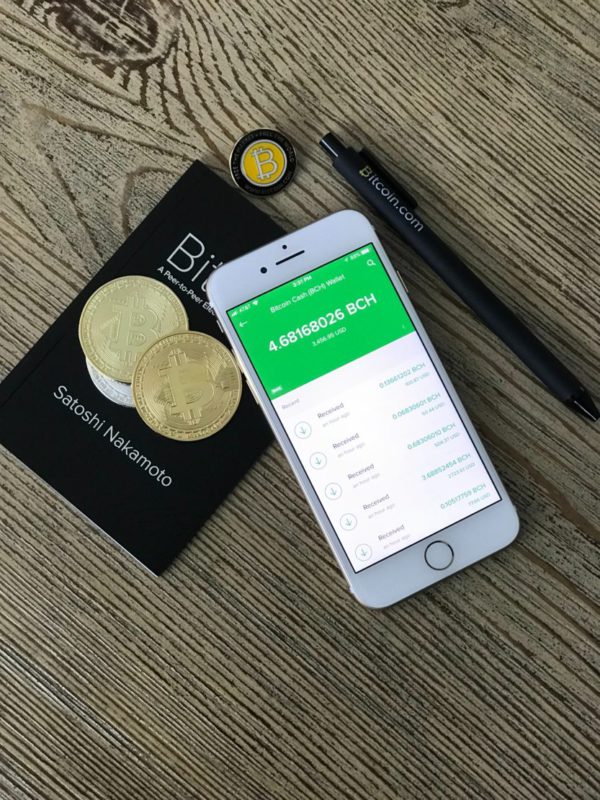2 Most Safe Place To Keep Your Bitcoins
Many bitcoin investors are new to the system and may not know how to maintain their assets’ security. Hackers are coming up with imaginative tactics to steal money. Several of the most noteworthy thefts have occurred in plain view. For instance, some hackers might reroute tokens from one wallet to another. The victims cannot prevent the theft of their tickets and must helplessly observe while their stuff is stolen.
KEY TAKEAWAYS
Bitcoin and other cryptocurrency tokens are susceptible to a loss for several reasons, including theft, malfunctioning computers, misplacing access keys, and more.
Cold storage, also known as offline wallets, is one of the most secure methods for storing bitcoin since these wallets cannot be accessed online. However, some users continue to find utility in hot wallets due to their improved accessibility.
Those interested in preserving the maximum security for their Bitcoin and other cryptocurrencies should consider using a hardware wallet for all long-term storage requirements.
Similar to how we store cash or cards in a physical wallet, bitcoins are likewise stored in a wallet, but one that is digital rather than physical. Building the digital wallet on hardware rather than the internet is feasible. Additionally, the wallet may be saved on a mobile device, the desktop of a computer, or the private keys and addresses required to access it can be written down on paper. These choices are all feasible. But which of these digital wallets provides the most security? The answer to this question will depend on how the individual manages their finances. Each bitcoin wallet holds a set of private keys that, if the bitcoin owner lacks them, prohibits them from accessing their funds. The most significant danger to the integrity of the Bitcoin network is the possibility that an individual user would lose or have their private key stolen. If the user loses her private key, she will permanently lose access to her bitcoins. A user risks losing her bitcoin if her computer malfunctions (such as the hard drive failing), if she is hacked, or if she fails the machine on which her digital wallet is kept.
The following sections will discuss some of the most reliable and safe techniques for storing bitcoin.
Hot Wallet
“Hot” wallets refer to wallets that are available online. “Hot wallets” are operated on internet-connected devices like PCs, cell phones, and tablets. Because these wallets generate the private keys for your currencies on internet-connected devices, you may be in a dangerous situation. The convenience of instantly accessing and transacting with your assets through a hot wallet is undeniable; however, hot wallets provide no security and are thus not advised.
Users who do not take enough care to safeguard their funds while using hot wallets risk having them stolen. This may seem implausible, yet it is a fact. This happens rather often, and there are several ways it might occur. For instance, it would be imprudent to boast on a public forum such as Reddit about how much bitcoin you own while using minimal security measures and storing the cryptocurrency in a “hot wallet.”
Most custodial exchange wallets are deemed “hot.” these wallets are meant to store a small amount of a particular cryptocurrency. In numerous ways, a hot wallet is akin to a bank account. According to traditional financial advice, the bulk of one’s wealth should be kept in savings or investment accounts. The same argument might be made for hot wallets. Hot wallets include desktop, mobile, and web wallets.
It is crucial to recognize that owning bitcoin in a wallet supplied by an exchange is distinct from holding cryptocurrencies in your generated wallet. The user of this kind of wallet does not own the private key to the cryptocurrency kept in this wallet; instead, the inventor of the wallet has this key. Wallets on a sale are simply accounts that the conversation itself secures.
Because cryptocurrency exchanges do not offer insurance through the SIPC or the FDIC, keeping coins in a safe area is crucial. If the business is hacked or unauthorized access is obtained to your account, your funds will be lost. The concept of “not your keys, not your currency” is regularly debated and reiterated on Bitcoin message boards. It has previously been proven that storing considerable amounts of cryptocurrency in a “hot wallet,” such as an exchange account, is not wise. Instead, you should move the overwhelming majority of your funds to a “cold” wallet that only you can access (explained below). Coinbase, Gemini, and Binance are among the many cryptocurrency exchanges that provide client accounts.
Even though these wallets are connected to the internet, making them a potential target for an attack, they are beneficial since they enable users to conduct transactions or trade cryptocurrencies briefly.
Cold Wallet
The following kind of wallet is the cold wallet, which is the most secure option for holding your money. The term “cold wallet” is the simplest way to describe a digital wallet that is removed from the internet and has a far reduced chance of having its security compromised. Depending on the kind of wallet, they are often called offline wallets or hardware wallets.
These wallets save an individual’s address and private key on a device that is not connected to the internet. They often include software that functions in tandem with the wallet, enabling users to see their portfolio without putting their private key at risk.
Paper Wallet
Using a paper wallet to store bitcoin offline is one of the most secure options. A paper wallet is a cold storage wallet that may be produced on particular websites. The program then creates public and private keys, which may be printed on separate pieces of paper. If you do not hold that piece of paper, you will be unable to access the bitcoin held at those addresses. Most people safeguard their paper wallets by laminating them and storing them in their bank’s safety deposit box or home safes. The only user interface components need for paper wallets to work effectively are a piece of paper and the blockchain itself.
Hardware Wallet
A user’s private keys may be securely saved on a hardware wallet, which often resembles a USB stick. These devices are often open-source, which allows the community to determine whether or not they are safe to use rather than depending on a company’s assurances. This offers several significant benefits over hot wallets, the most noteworthy of which is that it is impervious to viruses that may exist on the user’s computer. This is achievable because private keys never interact with a machine linked to a network or possibly susceptible software.
Cold wallets provide the most significant security for storing Bitcoin and other cryptocurrencies. In most situations, however, they need more experience with installation. Anyone interested in keeping bitcoin should educate themselves on the need for safe storage and the concepts of both hot and cold wallets.
Physical Coins
Recent years have seen a profusion of platforms that enable Bitcoin investors to acquire actual Bitcoins. A tamper-evident sticker will be put over a specific number of bitcoins on the coin you purchase. To get the physical cash, you may be compelled to pay a price that exceeds the value of the Bitcoin you are acquiring. This is due to the manufacture and distribution costs of the money itself.
Additional Measures to Guarantee Backup Safety
Always begin with regular and early backups of your whole bitcoin wallet. Ensure that all wallet.dat files are saved up, and then keep the backups in several secure locations (like on a USB, on the hard drive, and on CDs). Additionally, you must select a strong password for the backup. A history of regular backups may be the only way to recover cash from a digital wallet in the case of a computer failure.
The most recent software upgrades
Maintaining up-to-date software and operating systems on your mobile device and PC is crucial for protecting your bitcoins. Ensure that your software is constantly updated. A Bitcoin wallet not running the latest version of the Bitcoin software might be a target for hackers. The most current version of the wallet software will have a more robust security mechanism, resulting in better protection for your bitcoins. You may be able to escape a big disaster if the software on your device is maintained up to date with the most current protocol and security updates due to the wallet’s heightened security features.
Multi-Signature
Recently, the concept of multi-signature has gained pace; to execute a transaction, it is required to get authorization from several persons (often between 3 and 5). A single controller or server cannot complete all transactions reduces the danger of theft by a substantial amount (i.e., sending bitcoins to an address or withdrawing bitcoins). When a group member desires to spend or send bitcoins, they must get prior consent from the other group members. The parties permitted to transact are selected at the outset of the procedure.
Also, read – A Step By Step Guide To Assess A Crypto Project
Everything You Should Be Aware Of Regarding Cryptocurrency
Regardless of your preferred learning style, there is a course to help you become an expert in cryptography. You can take classes on Udemy that are taught in over 65 languages and cover everything you could want to know about cryptocurrency. In addition, you can choose an exchange that meets your trading needs and build a cryptocurrency wallet to keep your digital currencies. Learn more about Udemy and create an account now.
Stay informed with daily updates from Blockchain Magazine on Google News. Click here to follow us and mark as favorite: [Blockchain Magazine on Google News].
Get Blockchain Insights In Inbox
Stay ahead of the curve with expert analysis and market updates.
latest from tech
Disclaimer: Any post shared by a third-party agency are sponsored and Blockchain Magazine has no views on any such posts. The views and opinions expressed in this post are those of the clients and do not necessarily reflect the official policy or position of Blockchain Magazine. The information provided in this post is for informational purposes only and should not be considered as financial, investment, or professional advice. Blockchain Magazine does not endorse or promote any specific products, services, or companies mentioned in this posts. Readers are encouraged to conduct their own research and consult with a qualified professional before making any financial decisions. The featured image used is just a creative depiction of the title and it does not intend to hurt sentiments of any person or institution. If it hurts anyone sentiments, please do not hesitate to reach out to Blockchain Magazine.

 Bitcoin
Bitcoin  Ethereum
Ethereum  XRP
XRP  Tether
Tether  Solana
Solana  Dogecoin
Dogecoin  USDC
USDC  Cardano
Cardano  Lido Staked Ether
Lido Staked Ether  TRON
TRON  Chainlink
Chainlink  Avalanche
Avalanche  Wrapped stETH
Wrapped stETH  Wrapped Bitcoin
Wrapped Bitcoin  Stellar
Stellar  Sui
Sui  Toncoin
Toncoin  Hedera
Hedera  Shiba Inu
Shiba Inu  WETH
WETH  Polkadot
Polkadot  LEO Token
LEO Token  Litecoin
Litecoin  Bitget Token
Bitget Token  Bitcoin Cash
Bitcoin Cash  Uniswap
Uniswap  Hyperliquid
Hyperliquid  Official Trump
Official Trump  USDS
USDS  Wrapped eETH
Wrapped eETH  Pepe
Pepe  NEAR Protocol
NEAR Protocol  Ethena USDe
Ethena USDe  Aave
Aave  Aptos
Aptos  Internet Computer
Internet Computer  Ethereum Classic
Ethereum Classic  Ondo
Ondo  Mantle
Mantle  Monero
Monero  WhiteBIT Coin
WhiteBIT Coin  Cronos
Cronos  POL (ex-MATIC)
POL (ex-MATIC)  Render
Render  Jupiter
Jupiter  Dai
Dai  MANTRA
MANTRA  Layer One X
Layer One X 




